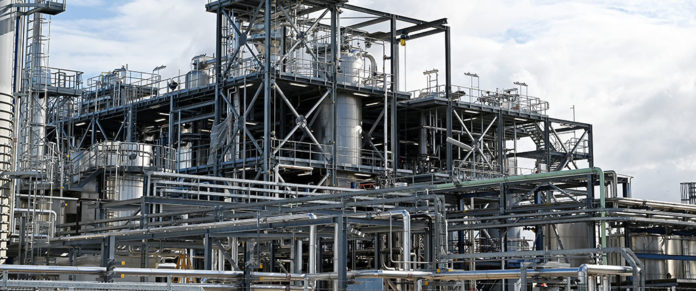Joint venture Avista Green announced last week that its new base oil rerefinery in Kalundborg, Denmark was operational. The facility replaces an Avista rerefinery that halted production in July 2017 following a fire.
German rerefiner Avista Oil AG and United Kingdom-based used oil collector Slicker Recycling Ltd. announced in June 2018 their partnership to build the rerefinery. At that time they said the two companies’ used oil collection networks would supply feedstock from different European markets for the new rerefinery in Kalundborg. The plan was for the new rerefinery to produce API Group I base oil.
Although last week’s announcement didn’t disclose the estimated production capacity, Avista’s spokesperson said in 2018 that the base oil yield for the company’s technology was typically 60% to 70% of used oil feedstock. The new Kalundborg rerefinery has feedstock capacity of 100,000 metric tons per year. The former rerefinery had capacity to make 42,000 t/y of Group I base oil.
Earlier in 2018, Slicker, a subsidiary of Greenbottle Ltd., acquired Avista Oil Services UK Ltd. Slicker bills itself as the largest used oil collector in the U.K.
At the time of the 2018 announcement, Avista said the base oil from the new Denmark rerefinery would be marketed as Group I+ base oil, with viscosity index and saturates levels close to or meeting Group II levels. “The major markets will be industrial lubricants and marine oil where we see the demand for carbon dioxide-reduced base oils strongly increasing,” Detlev Bruhnke, Avista’s chief technical officer, told Lube Report. “Other applications are [heavy-duty diesel engine] oils and lubricants for the agriculture market.”
Avista also has rerefineries in Dollbergen, Germany, and in Peachtree City, Georgia, in the United States. “The [Kalundborg] plant will be using Avista’s proven technology, but there will be some improvements from our experiences in Dollbergen and Peachtree City,” Bruhnke said. “Moreover, the plant will have some more flexibility in being able to produce different viscosity grades and the ability to extract some additional amounts of lighter lube fraction.”
The joint venture said in its press release last week that the new rerefinery was designed to meet environmental and safety standards and that it is energy efficient through the use of processes such as recirculation of surplus heat. “Modern laboratory facilities are available for total quality assurance, from receipt of feedstock right through to the delivery of the final rerefined base oil,” Avista Green stated. “Safety remains a priority, where the plant design, equipment, controls and processes have all been implemented to keep employees, the environment and process integrity safe.”
Bruhnke noted the new facility’s firefighting measures and installations were designed together with industrial experts, “which led to the highest and most modern standards of safety features in this regard.”
